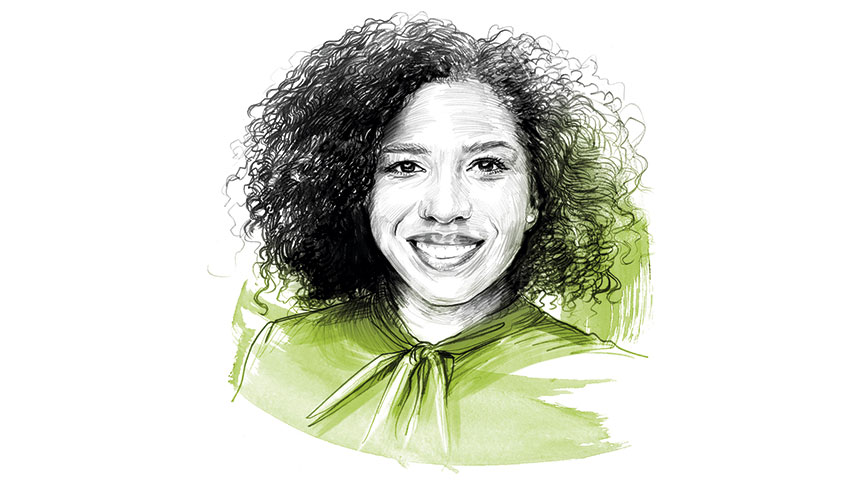Reports: Miriam Hoffmeyer
Answer to pressing issues
Jointly overcoming global challenges: the DAAD is funding Global Centres in Africa, Asia and Latin America. Two researchers share insights into their work.
To find answers to global health issues and to the biggest threat to security in this world: the climate crisis. According to Germany’s Federal Foreign Minister Annalena Baerbock, these are the central tasks of the DAAD-funded Global Centres for Health and Climate. At eight centres – four focusing on health and pandemic prevention, and four in the area of climate and environment – researchers from Europe, Africa, Asia and Latin America are jointly developing solutions aimed at achieving the Sustainable Development Goals (SDGs). These include, for example, innovative agricultural methods, as well as new treatments and vaccines. Furthermore, the centres strengthen research and teaching capacities in the Global South and enable the expansion of global networks.
The first conference for the Global Centres, at which Baerbock gave the opening speech, took place in Berlin on 6 and 7 September 2022. 150 project participants and funding recipients from all over the world had the opportunity to engage in exchange with one another, as well as with funders and political decision-makers. In panel discussions, keynote speeches, poster presentations and workshops, the centres gave insights into specific subject areas and discussed strategic questions relating to science diplomacy and theory-to-practice transfer.
Sawsan Abdul-Jalil
“Despite their immense importance, ecosystem services are unaccounted for in conventional economic models. The fact that insects pollinate plants or that nature provides recreational spaces for people is difficult to quantify as a market value. For my dissertation at Humboldt-Universität zu Berlin, I have been studying the effects of climate change on rangelands in Jordan since March 2022, incorporating ecosystem services into the general equilibrium. My research forms part of the work done by the Regional Centre for Sustainable Adaptation to Global Change in the Middle East – SAGE-Centre for short, which is one of the DAAD-funded Global Centres for Climate and Environment. SAGE-Centre is based in the Palestinian territories,though it also pursues research in Jordan and is involved in a German-Israeli collaboration.
Although my home country Sudan has enormous natural resources, it is poverty-stricken. This contradiction has preoccupied me a lot since I was a teenager. After graduating with a Bachelor’s degree in economics, I became a lecturer at the University of Khartoum. In 2015/2016, I studied international and development economics at the Berlin University of Applied Sciences on a DAAD master’s scholarship. Afterwards, I did an internship at the Gesellschaft für Internationale Zusammenarbeit (GIZ) in Eschborn and in Accra.
It was a great experience to be able to apply my knowledge in practice. In 2018, after the revolution against the military regime, Sudan got a new government. I worked as an advisor to the minister of finance in Khartoum and at the World Bank. In 2021, the military took power in Sudan again. What is very close to my heart is the Sudanese Women Economists Association (SWEA), which I co-founded in 2020. At first, SWEA was planned only as a network for women economists. Then we had the idea of offering advanced training in the area of development and public policy. We have already successfully completed two rounds of training programmes.”
Cao Le Chi
“I hope to improve the lives of people in Vietnam. That’s why I studied medicine in my hometown of Hue. After graduating from Hue University of Medicine and Pharmacy (HUMP) in 2016, I worked as a lecturer in the Department of Parasitology. That is also where I see my future. As part of the joint master’s programme in biotechnology run by HUMP and the University of Sassari, I spent a year in Italy. There, I learnt how to grow parasites in vitro and became acquainted with other new techniques. In my master’s thesis, I worked on the parasite Trichomonas vaginalis, the pathogen of a sexually transmitted disease that is widespread not only in Vietnam. I can see that working at the Global Centre for Health and Pandemic Preparedness PAN ASEAN Coalition for Epidemic and Outbreak Preparedness (PACE-UP) is a great opportunity to build a clinical research career in the area of infectious diseases.
PACE-UP aims to identify pathogens of animal origin in domestic and wild animals and to characterise them at the molecular level. On this basis, their danger to humans can be better assessed. I have been enrolled as a full-time PhD student in experimental medicine at the University of Tübingen since January 2022. At the Institute for Tropical Medicine I work with international students and researchers. After laboratory work, we often spend our free time together, playing football for example. I am currently studying the hepatitis E virus to better understand the genetic diversity of types, virulence patterns and dynamics. After completing my PhD, I will definitely return to Vietnam. I hope my work will help to improve the public health system there to protect the population even better against pathogens with epidemic potential.” —
Short film portraying the Global Centres for Health and Climate on YouTube


